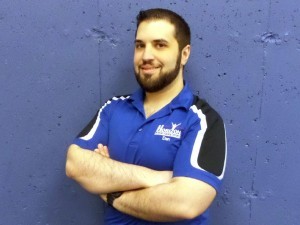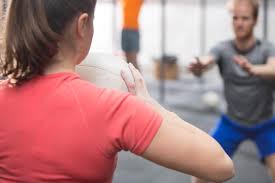Sport Psychology
Personal Trainer in Connecticut
One of the most important aspects of personal training—which is commonly overlooked– is the mind. The brain and the body are, individually, extremely powerful. When combined, an athlete or client can do things they never expected.
Unfortunately, a person’s mind can also work against them. The mind can create barriers that limit physical performance. An experienced trainer will know how to manage these mental barriers, and help each and every client get the most out of their workout. When we talk about the psychology of training athletes, it is called Sport Psychology. Sport psychology focuses on helping athletes defeat mental barriers at the time of competition.
Athletes put significant time into their personal training. They spend countless hours getting ready for their season or event. A true athlete understands the sacrifices and work they need to put in, to be prepared, and they will do whatever it takes. When they are on the training floor, they are comfortable; they know what they are working for, and nothing will stop their preparation. They will give everything they have in training, and they push themselves every session to ensure they get better.
Where the majority of athletes discover psychological barriers is when it is time to perform. When the athlete is in front of a crowd, or has a team counting on them, this will be when they are most likely to “choke.” A few situations that will trigger these mental blocks are: focusing on errors; not trusting physical conditioning; and improper pacing.
The inability to handle errors is a common source of performance failure for athletes. An athlete– no matter how skilled– will inevitably make a mistake in their career. What really matters is how an athlete handles those errors. If a pitcher walks a batter, will he “shake it off” and strike out the next batter? Or, will he have a long string of walks? Errors have a tendency to create a snowball effect, and so, it is imperative to teach an athlete how to cope with these singular errors and not let them turn into a completely ruined performance.
A lot of athletes will struggle with trusting their physical conditioning. There is often a question of “did they do enough?” When an athlete doubts their training, it will reflect in their performance. It is not that athletes haven’t trained enough, but rather, a flawed belief that they needed more. That one little thought can be a mustard seed. If that negative thought takes hold and starts to grow, it can escalate into a complete failure. The doubt will manifest itself in the form of performance withdrawals.
The final source of failure in sports psychology is insufficient pacing. When an athlete doubts themselves, they will sometimes over compensate with overconfidence. Instead of properly pacing for the whole game, they will come out of the gates full force, giving everything they have instead of trusting their skill and conditioning. When this happens, the athlete will inevitably “gas out.” If the opponent can weather the storm, then they will undoubtedly get the upper hand.
So, how do trainers manage these mental blocks?
There are four key things that we look for to help aid in the managing of an athlete’s psyche.
The four tools we use are:
- Meditation,
- Breathing Exercises;
- Visualization; and
- Proper Motivation.
Meditation is a great tool to allow an athlete to harness complete relaxation. With this relaxation, athletes will learn how to manage physical and mental stress. Studies have shown that just a few minutes of complete relaxation, and void of any distraction, can produce exponential increases in stress relief.
In addition to traditional meditation, a lot of athletes are using sensory deprivation as a form of forced meditation. Sensory deprivation is a salt-water filled tank that has no light and no sound, and water that is set to your body temperature. It forces the mind to shut down and promotes complete relaxation. Many major league teams have invested in this form of meditation for their athletes.
Breathing exercises are often practiced by a lot of athletes, in conjunction with meditation. These deep breath exercises can promote almost-instantaneous relaxation. They are a great tool for instances where an athlete experiences an acute moment of stress and anxiety. Using these breathing techniques will help the athlete re-center and move past any triggers they are facing.
Visualization is also an extremely beneficial tool for athletes. Visualizing the event– every step and every movement are rehearsed in the athlete’s mind. The athlete is seeing every potential outcome and acting them out in their head. If done properly, the athlete is significantly prepared for anything that they may face. When they can trust their training and they can trust that they are prepared for any scenario, they will flow through the event almost effortlessly.
The final aspect, which is more important for the personal trainer than the athlete, is knowing what proper motivation is. Every person reacts differently to different stressors. It is key to understand your athlete and know which stressor they respond to the best. The wrong stressor can trigger an athlete into a downward spiral from which it will be difficult for them to recover.
The goal of managing sports psychology is to get the athlete to experience an “Ideal Performance State.” When an athlete enters this ideal performance state, they experience hyperawareness; every aspect of the game seems to move in slow motion, and everything flows effortlessly. The athlete will have 100% focus and full confidence in their skills and training. This is when athletes have “the best game of their life.” The goal is to get an athlete to experience this phenomenon as often as possible. It will mean there will be no worries, no negative stimuli and success will be inevitable!






